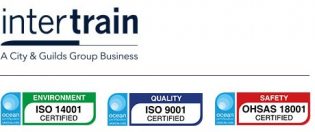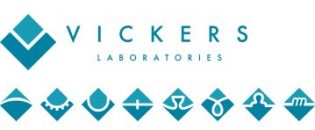Alternative Partnership’s effective and carefully developed training program equips senior leaders with the tools and skills to train and develop future managers, a process endorsed by the Institute of Leadership and Management (ILM). This endorsement ensures that the leaders we train not only enhance their own management capacity but are also able to provide their successors with recognised ILM qualifications in-house.
This prestigious endorsement positions senior management to strengthen employee engagement, boost retention, and enhance organisational effectiveness by developing internal training programs. We have successfully implemented this model with a leading regional university and are preparing to extend our services to other top academic institutions across the North.
Our train-the-trainer approach fosters critical vocational skills and leadership competencies. Senior staff are empowered to lead by example, teaching techniques that improve team cohesion and optimise workplace performance. Through this program, leaders gain the ability to mentor their successors in addressing challenges, communicating with confidence, and driving positive results. Ultimately, these trained leaders will help their teams improve both their personal impact and overall team success. We strive to include a wide variety of essential skills as part of our carefully designed training programmes.
Leadership and Management
A central component of our training is helping senior staff differentiate between leadership and management, while also exploring various leadership and management styles. These roles, while closely related, involve distinct skills that are crucial for organisational success. Understanding the differences between leadership and management helps organisations place the right people in the right roles and allows individuals to develop the appropriate skills for their responsibilities, ultimately improving team performance and workplace dynamics.
Self-management
This is a crucial skill, enabling individuals to effectively control their time, energy, and emotions to achieve their personal and professional goals. Mastering self-discipline, prioritising tasks, and managing stress are key aspects of self-management – this supports improvements in productivity, decision making, and adapting effectively to changing circumstances. Strong self-management also fosters accountability and resilience, helping individuals maintain focus, meet deadlines, and navigate challenges without constant external supervision. When done properly, self-management leads to greater personal growth and enhances one’s ability to contribute positively to a team or organisation.
Understanding Team Dynamics
As part of our training, leaders and team members develop their ability to recognise how individual behaviours, relationships, and group interactions affect overall performance. By grasping these dynamics, leaders can foster better communication, collaboration, and conflict resolution, ensuring that the team works cohesively toward common goals. It also allows for the identification of strengths and areas for improvement, helping to maximise productivity and innovation. Understanding team dynamics leads to a healthier, more motivated team and improves the ability to adapt to challenges and changes.
Performance Management
This vital skill ensures that employees’ efforts align with the organisation’s goals while promoting continuous improvement. By setting clear objectives, providing regular feedback, and evaluating progress, performance management helps individuals understand their roles, stay motivated, and develop professionally. It also enables managers to address issues promptly, recognise achievements, and guide staff toward achieving their full potential. Ultimately, effective performance management boosts productivity, enhances employee engagement, and contributes to overall organisational success.
Constructive Feedback
When senior managers equip this skill effectively, they can provide employees with clear, actionable insights that help them improve their performance and develop their skills. Unlike generic praise or criticism, constructive feedback focuses on specific behaviours and outcomes, offering guidance on how to address weaknesses and build on strengths. This approach supports the development of a culture of open communication and continuous learning, enhancing overall team effectiveness and individual growth. By delivering feedback in a supportive and solution-oriented manner, you empower others to make meaningful changes and achieve their full potential, as well as taking effective steps towards the best outcomes for your team and organisation.
Fostering Team Commitment
This skill is essential in business settings as it drives collective effort, enhances collaboration, and ensures that team members are invested in achieving shared goals. When team members are committed, they are more likely to engage actively, contribute their best work, and support one another, which leads to higher productivity and a more cohesive work environment. Commitment also reduces turnover and increases job satisfaction, as employees feel a stronger connection to their work and the organisation. By building a sense of belonging and purpose, leaders can harness the full potential of their teams and drive sustained success.
Handling Challenging Situations
Managing difficult behaviours and situations is a critical step towards maintaining a positive and productive work environment. Addressing conflicts and negative behaviours promptly and efficiently prevents escalation, minimises disruption, and ensures that all team members can work effectively. By dealing with these issues constructively, leaders and managers can foster a culture of respect and professionalism, improve team dynamics, and maintain morale. Effective management of such situations also demonstrates strong leadership and problem-solving skills, which helps build trust and confidence among team members. Ultimately, handling challenges with competence ensures that the team remains focused, motivated, and aligned with organisational goals.
Participants not only grasp these concepts but also learn how to clearly communicate them, equipping them to manage both team and individual performance effectively.
Our Training in Action
Our program goes beyond merely teaching leadership and management theories by emphasising the practical application of these concepts to real-world scenarios. It is designed to cultivate the ability to effectively motivate staff and support their personal and professional objectives. This approach not only enhances their capacity to drive performance and engagement but also builds a supportive and productive working environment where team members feel valued and empowered to reach their full potential. By integrating motivational strategies with goal-setting practices, our training ensures that leaders can create a more dynamic, productive, and cohesive business environment. Senior managers receive in-depth training in advanced coaching techniques, which equips them with the skills to inspire and guide their teams toward achieving both individual and organisational goals.
With Alternative Partnership’s ILM-endorsed program, senior managers will not only be able to develop their own leadership capabilities but are also enabled to create a sustainable leadership pipeline for the future.
Developing Leaders
As a manager or leader, there’s always something new to learn or a skill you can improve and develop. Organisations need to support managers and leaders in this development, but you also need to invest in yourself.
Getting formal leadership and management training will not only help you build your leadership skills, but it will also help you grow in confidence and increase your chances of career progression.
Alternative Partnership delivers ILM-accredited Leadership and Management training programmes to support you and your teams in gaining formal, nationally recognised qualifications.
Find out more about our current ILM courses here or get in touch to discuss how our services could benefit you.












